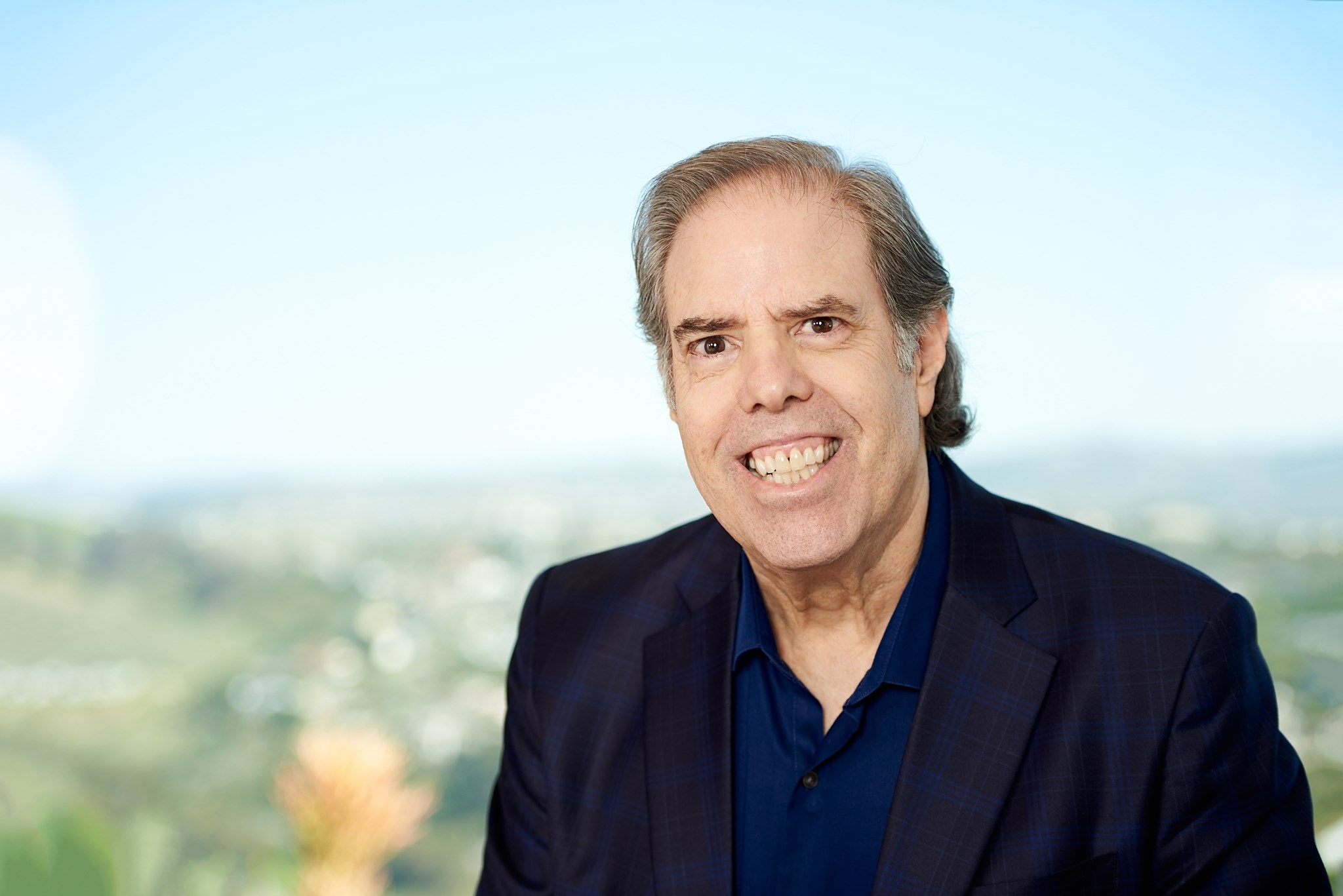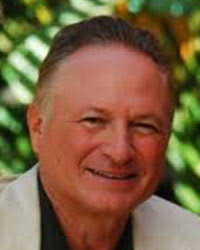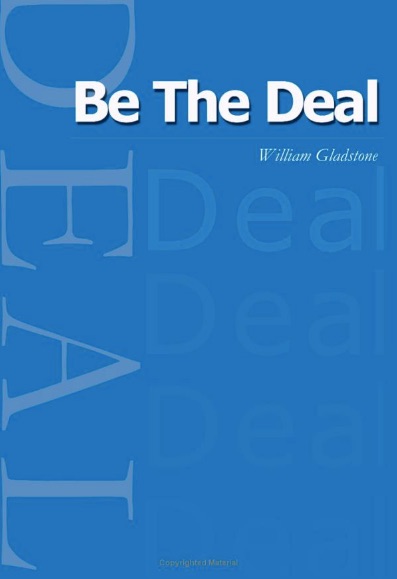Today we are interviewing Bill Gladstone, CEO, founder of Waterside Productions and agent extraordinaire. Bill Gladstone founded Waterside Productions, Inc. in 1982, and has personally placed more than 5000 titles with dozens of publishers. He has represented stars of the technical world ranging from Peter Norton to Linus Torvalds and was responsible for selling the first For Dummies book, DOS for Dummies by Dan Gookin, which led to the phenomenal series which now has sold over 300 million copies.
Currently, Mr. Gladstone represents individual authors such as spiritual teachers Eckhart Tolle, Dr. Barbara DeAngelis, and Neale Donald Walsch, radio talk show host Thom Hartmann, international peace advocate Dr. Ervin Laszlo, philanthropist Shari Arison, the Napoleon Hill Foundation, New York Times bestselling authors Victor Villasenor, Gay Hendricks and John Assaraf, environmental activists Michael Tobias, Paul Ehrlich, Hunter Lovins, musician Neil Young, and many other outstanding authors and professionals dedicated to creating books which inspire and improve the world.
Mr. Gladstone is the author of the best-selling novels The Twelve and The Power of Twelve, co-author with Jack Canfield of The Golden Motorcycle Gang as well as producer of the film Tapping the Source and co-author of the book Tapping The Source (released in paperback as The Complete Master Key System by Tarcher/Random House). An excerpt from his autobiography “Be The Deal” is provided below.
What experience has inspired you the most in your journey of becoming a conscious business leader?
My mother taught me to always focus on helping others. My father taught me to focus on results. When I was twenty-two I traveled around the world as production coordinator and researcher for Rod Serling’s television special IN SEARCH OF ANCIENT MYSTERIES.
Several miracles occurred on that film expedition which taught me to always focus on the present moment and the miracles which constantly support us throughout life and business.
What 3 tips would you give any leader for making a meaningful difference in the lives of their direct reports?
Lead by example, learn to listen, & never give up.
What are 1 to 3 mindset changes business leaders need to make in order to truly create a working environment that fosters inspiration, connectedness, and transformational personal growth?
Be open to the unknown. Have goals but be willing to change them. Think beyond immediate results and focus on the long term well-being of everyone with whom you are working including fellow employees, customers and even competitors.
How do you see the connection between business success and personal transformation for today’s leaders?
It is essential.
What’s the biggest change in the way organizations will need to function in the future related to using its human capital compared to 10 or 15 years ago?
Treat everyone with dignity and respect. Bring love into the workplace by showing love for all living things. Create environments which honor every aspect of the environment.
Purpose and Community are more important to younger generations. How do you see those focus areas to improve business results, retention, and recruitment for your organization?
Incorporate major community projects into your organization. Participate in events such as Good Deeds Day in which everyone in the organization does a selfless good deed. Create programs such as Todd’s shoes in which products are given to those in need when it can be done efficiently. Take care of yourself and your family first to be sure you are giving from your abundance and a place of personal well being.
Given your commitment as a conscious business leader, what’s your approach to developing leaders to encourage greater consciousness?
Meditate, watch inspirational films such as Tapping the Source, Perception, The Portal.
Read books like THE POWER OF NOW by Eckhart Tolle , THE ESSENTIAL GUIDE by Neale Donald Walsch and LOVE IS DAMN GOOD BUSINESS by Steve Farber.
What do you see as the key qualities of a conscious business leader?
Wisdom,optimism, sense of humour, passion.
What is the link between a conscious business and being environmentally sustainable?
Unless you direct your business to be environmentally sustainable you cannot be a conscious business.
What is your biggest challenge as a conscious business leader?
To overcome negative people and negative outcomes. Not everyone will treat you well at all times… not all well-thought out initiatives will be successful. Dealing with failure and disappointment is our biggest challenge.
What do you think the biggest changes we will see in the workplace twenty years from now due to conscious business leadership’s growth?
Greater harmony between machines and humans, and a return to human goals above efficiency and profits. Greater appreciation that every moment is precious and that our work environments must nurture ourselves and our planet.
How can our readers follow you or your company on social media, and get a copy of your book?
My latest book BE THE DEAL is available on Amazon and Kindle. More information about our literary agency, book publishing and our new Waterside Online University are available at www.waterside.com.
Be The Deal
Excerpted with permission from Waterside Productions
Copyright ©2019 by William Gladstone www.waterside.com
All rights reserved. This book or any portion thereof may not be reproduced or used in any manner whatsoever without the express written permission of the publisher except for the use of brief quotations in articles and book reviews.
How to Be Your Own Dreamkeeper and Dream Facilitator
Now that you know how to create your own luck, what are you going to do with it? Obviously, you will want to use luck to make your life easier, more productive, more fun, more interesting, and more magical. In the process, you will probably accumulate more money, more possessions, more experiences, and more things. There is nothing wrong with any of those desires or goals, as long as they are balanced.
But fundamentally, you need a goal and a purpose, or there is no point to creating luck in the first place. If you study Maslow’s hierarchy of needs, you will come to agree with his assessment that the more we grow as individuals, the more likely we are to become concerned about others, the notion of community, and the planet as a totality.
None of us is alone, and our luck only exists in the context of the rest of humanity. Ultimately, we each have a goal to contribute to improving ourselves and this planet, and, if possible, to leave the world a better place than it was when we entered. This may seem a grandiose assignment, but it isn’t. To improve the planet, it is only necessary that each individual strive to be the best person possible and to help others be their best as well.
To a large extent, the same principles that apply to making great business deals also apply to making a concerted effort to saving the planet. In the deepest sense, the ultimate way of being the deal is dealing with the planet and the higher purpose for which we were all born. Personally and the mere improvement of living conditions increased efficienty and greater opportunities for individuals to concentrate to concentrate on creativity, joy, humor, art, sport, nature, and achievement is satisfaction enough. Others have told me that they seek a deeper evolution for themselves to evolve spiritually to be their highest selves. Either way, either direction, both the inner search and the outer expression of goodness complement our human purpose and contribute directly to improving the planet and leaving it in the best shape possible for those who will come after us.
This is a book about deal making in the context of business and money. As a member of the sixties generation, I was part of the generation that rejected the mindless affluence of the Fifties and and criticized the pursuit of money. I remember distinctly telling my mother that I did not think that I would bother to get a college degree, but instead just take courses that interested me. She warned me that this would be foolish. I asked her why, and she said, “Well, without a degree, you won’t get as good a job, and you won’t make as much money.” “Why do I need money?” I asked. “Well, if you don’t have any money, you won’t have any power in this society.” “Why will I want to have power?” I asked. “You will come to understand that you will want power. Without power, you cannot choose your life course or align with your deeper purpose,” she concluded. At the time, I thought that I would be different, that my generation would find a new way and would create a new system of politics and economics.
On the surface, I was wrong, and yet I know from associating with members of that generation who have now accumulated great wealth and power that despite the outer-seeming sellout of our earlier ideals, many of us are consciously working to create the utopia on earth that we envisioned as adolescent men and women in the sex, drugs, and rock-and-roll era in which we became adults.
We do this within the context of business and money. We believe that money is an energy that can help us achieve our goals. We are careful not to become too attached to the objects that money can buy, but instead become attached to the limitless consciousness of abundance and power that generating money can give us. There is a level on which many of us are still revolutionaries participating in the system, just as our parents did, but with our own subversive agendas to radically and forever create a system both economic and political that is more in touch with the true needs of the planet, the individual, and our communities.
I have spent much of the last forty years exploring and benefiting from the breakthroughs in computer technology. The technology is marvelous in and of itself on an intellectual level, and it’s exciting to contemplate and to create with, yet we are more aware than ever that technology itself is neutral. It is only through committed effort that technology will ever actually solve the true problems of humanity, or contribute to making the world a better place for all of us.
One of the concepts that has governed much of my business life is the concept of the highest and the best purpose. My first familiarity with this term came in relation to real estate transactions. It was pointed out to me that a building would have greater value for its owner if the building were used to its highest and best purpose. For example, since commercially zoned buildings can garner higher rents than private residences, it is not the highest and best use of a commercial piece of property to use it as a personal residence. You may choose to do this for personal reasons, but from the pure economic perspective, you would not be making the highest and best use of your land.
When clients come to me with projects, I look at their goals in terms of the highest and best use of their talents. It may be more interesting to a particular client to write a book on an esoteric piece of software that might sell only ten thousand copies, but if that author is talented enough to write on a topic that could reach millions, I suggest that he or she consider that oportunity first.
In most cases, clients want to balance their need to make money with their hobbies and interests. Many times the projects that can make the most money are just as interesting as those that would not be economically viable.
On a higher plane, each one of us has a highest and best destiny. I consciously try to help my clients at least in regards to their work life to achieve this highest and best destiny. I try to apply this same rule to myself, and it is never easy. It requires a constant willingness to remake myself, to push my limits, and to explore unchartered territory. It is demanding, but for me it is also the source of my per- sonal creativity, without which life would become dull, predictable, and less vibrant.
Over time, I have been so consistent with holding this perspective with people I meet for the first time that they sometimes wonder how I can cut right to the heart of their goals.
I became so used to thinking of myself as the keeper of the dreams for my writer clients that I wrote a poem entitled “Dreamkeeper.”
In this moment
I am the dreamkeeper
I have come to awaken your dream
I am the dreamkeeper
awaken me to your highest dream
My gift to you
I can no longer deny In your passion
I grant you everything
I return to you again and again
the sun, the stars from which all began
In this moment
I am the dreamkeeper
I have come to awaken your dream I am the dreamkeeper
Awaken me to your highest dream We can jump into a time machine and set it ahead or behind
we can live one moment of eternity in just a minute of time.
I am the dreamkeeper
I have come to awaken your dream I am the dreamkeeper
Awaken me to your highest dream.
We all have the capacity to be dreamkeepers, keepers of our own dreams and facilitators of the dreams of others.
We think that our dreams are private individual fantasies, but in reality, they can be collective collaborations. The best dreams require interaction with the rest of humanity. I hope that you will use your good luck to awaken yourself and those you care most deeply about to your own highest and best dream, and I also hope that you serve as a catalyst for pragmatic, business-oriented dreamers everywhere.
Printed in the United States of America 2019
ISBN-13: 978-1-943625-36-9 POD edition
ISBN-13: 978-1-941768-92-1 ebook edition
2055 Oxford Ave
Cardiff, CA 92007 www.waterside.com



